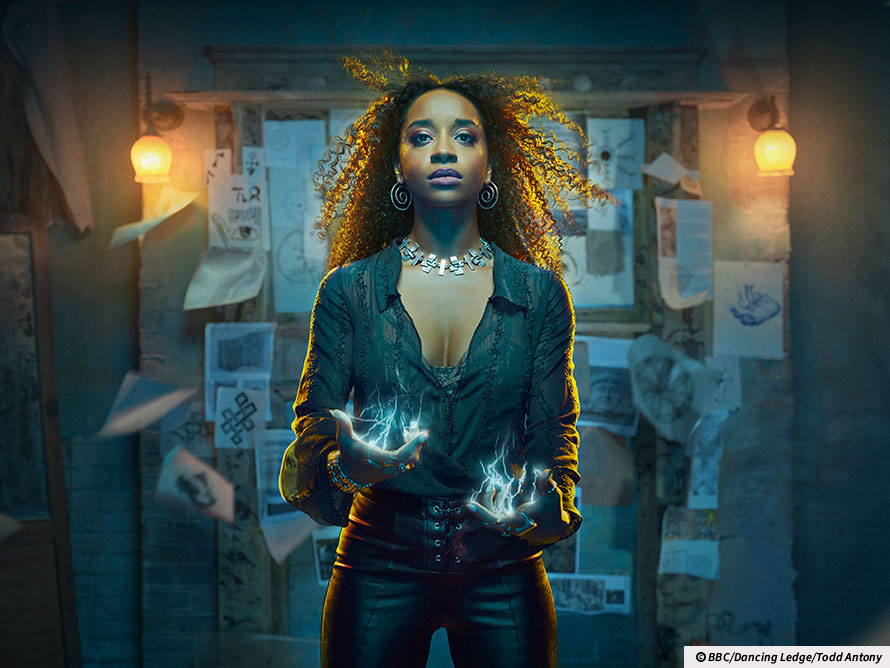Do we need more magic in our lives? A new BBC television series about a coven of witches in modern-day Manchester suggests the supernatural is going mainstream.
The witch set to cast a spell on TV audiences
 Force of nature: Siena Kelly stars as a young woman discovering her magical powers through online dating.
Force of nature: Siena Kelly stars as a young woman discovering her magical powers through online dating. Glossary
Tarot - A pack of 78 cards used for fortune-telling. Originating in Italy in the 14th Century, it is the forerunner of modern playing cards.
Occult - A term used to refer to supernatural happenings outside the bounds of the traditional religions. The word literally means hidden.
Pagan - Spiritual beliefs other than those of the main or recognised religions. Often used in a historical context.
Gen Z - Short for Generation Z, meaning people born in the late 1990s and early 2000s.
Census - An official count of the number of people in a country. In England and Wales, a census takes place every decade.
Druid - A member of the high-ranking priest class in ancient Celtic religion.
